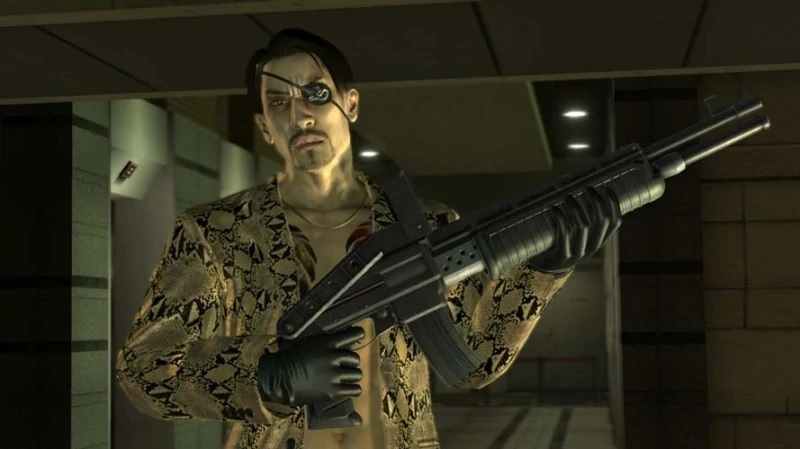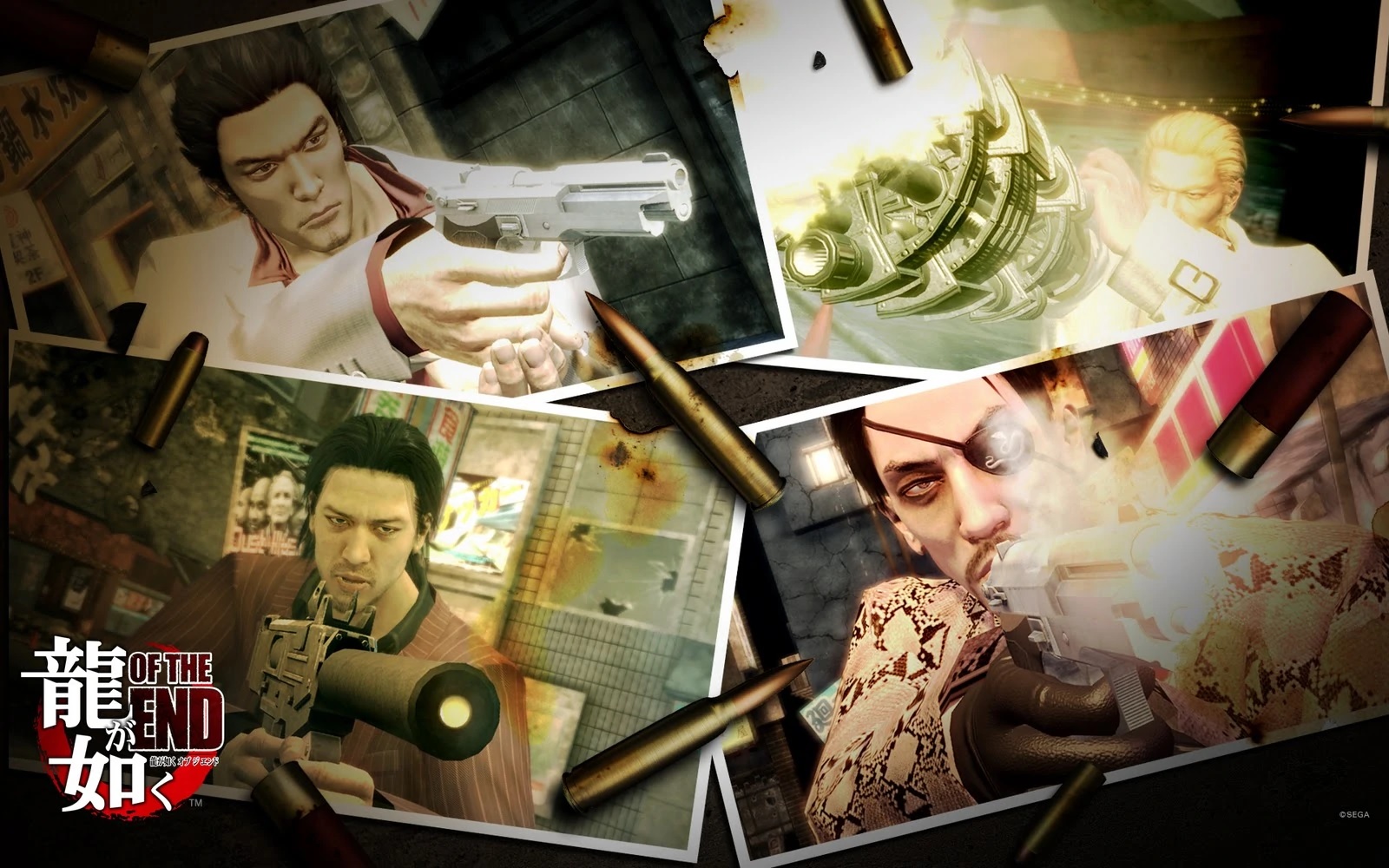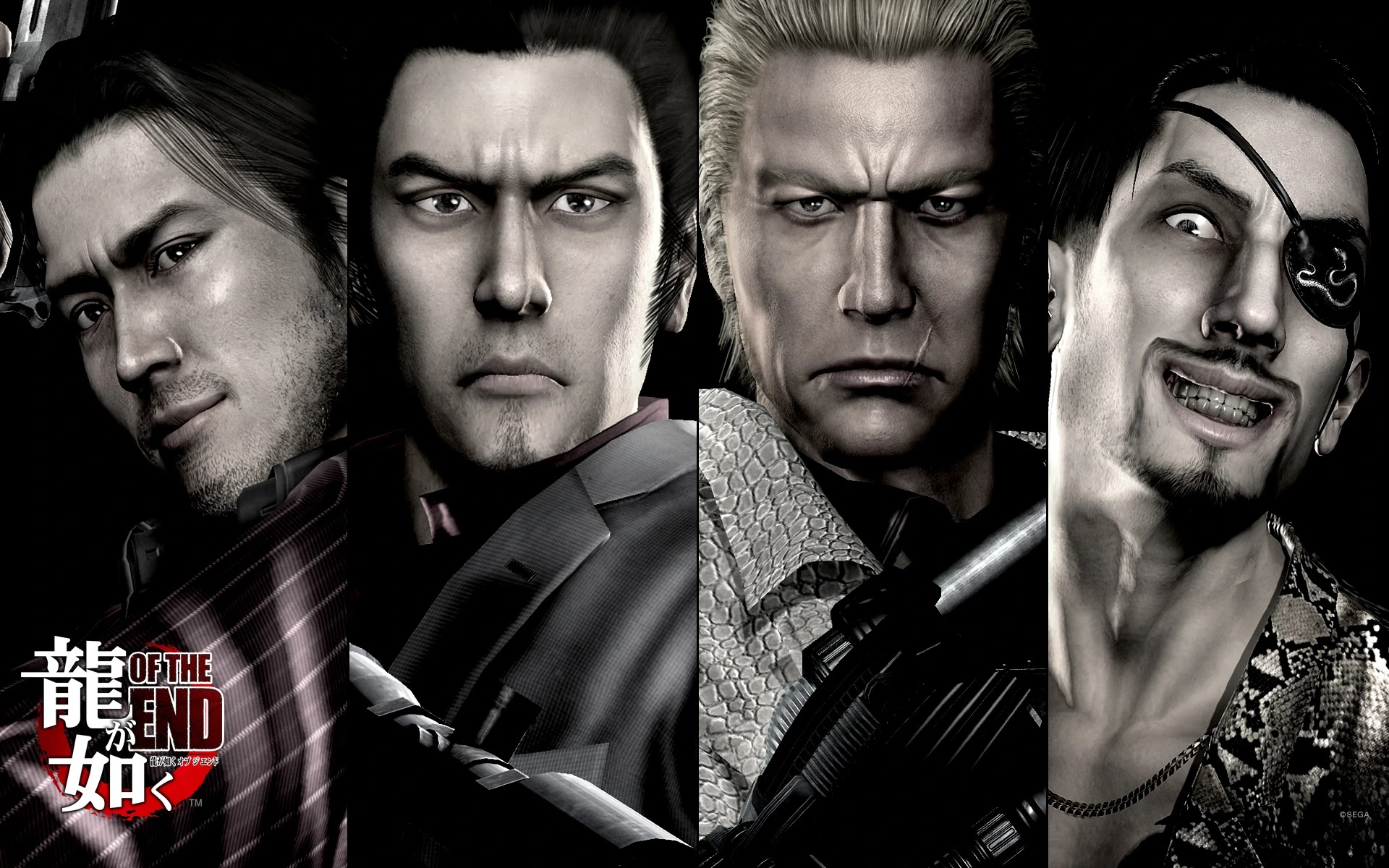Yakuza: Dead Souls is still available — but you may not want to play it
Yakuza: Dead Souls is an interesting, albeit failed, experiment

Welcome! This column is part of a regular series in which we share what members of the Tom's Guide staff are playing and enjoying right now, with an eye towards helping you find great games that you may have missed. Don't miss our recent column on why you should play Stranger of Paradise: Final Fantasy Origin.
Yakuza: Dead Souls is the only game in the series that Sega hasn’t remastered for modern consoles. Having played through about 1/4th of the game, I now understand why. This noncanonical spinoff pits some fan-favorite Yakuza characters against a zombie apocalypse, and things get silly — well, even sillier than usual. The trouble is that, in spite of its creative premise and genuinely funny moments, it’s not actually much fun to play.
For those who haven’t dabbled in the Yakuza series before, it’s a series of action/adventure games that follow Kazuma Kiryu, a former yakuza officer who constantly gets drawn into convoluted, dramatic plots to destabilize the Japanese criminal underworld. By borrowing elements from the brawler, open-world and RPG genres, Yakuza has attracted a broad and dedicated fan base, who come for the deep, brooding main stories and stay for the bizarre, eclectic side missions. You might find yourself fighting your way out of a mob boss’s headquarters in one mission, then racing slot cars or managing a hostess club in the next one.
I started working my way through the games when I discovered that Yakuza was the perfect series for Xbox Game Pass. With Microsoft’s subscription service, I worked my way through the first four games, as well as the prequel, Yakuza 0. But then, I learned that there was actually a spinoff game that came out in-between Yakuza 4 and Yakuza 5. This is Yakuza: Dead Souls, and for some reason, Sega never saw fit to remake or remaster this one.
Still, curiosity got the better of me. I dusted off my PS3, recharged my controller, and went through the extremely convoluted process of buying a digital PS3 game. At long last, I was ready to fire up the most obscure Yakuza game on this side of the Pacific.
A few hours later, I realized why porting the game wasn’t high on Sega’s list of priorities.
A fundamental mismatch

If you haven’t played the Yakuza series, it’s worth pointing out that the games have always put melee combat front and center. In each game, Kiryu (and, occasionally, a handful of other playable characters) enlist the help of martial arts masters to hone their hand-to-hand combat skills. You start off with basic punches and kicks, but you can work your way up to devastating counterattacks and stylish “Heat actions” that let you turn the environment against enemies, often in hilarious ways.
The focus on melee combat serves three functions. First, it gives every encounter a sense of drama and urgency. You are not gunning your way through a series of forgettable bad guys; you are getting up close and personal with street toughs, yakuza enforcers and criminal masterminds. This makes the games’ difficult boss fights especially memorable.
Second, melee combat makes the setting feel a little more authentically Japanese. Gun violence is uncommon in Japan, even among organized crime syndicates. Having characters engage in frequent, protracted shootouts would make the setting feel a little less like Tokyo, and a little more like any modern video game city.
Third, and most importantly, a focus on melee combat means that the developers can improve the combat system in each game. Kiryu started off with a relatively modest skill set — punches, kicks, grabs, throws, a few weapons and so forth. Later games featured branching skill trees and multiple playable characters with distinct fighting styles. Melee combat is what the Yakuza series knows best, and fans have come to expect at least incremental improvements in each new game.
That’s why I was not thrilled when I discovered that Yakuza: Dead Souls is not a third-person brawler at all. It’s a third-person shooter — and not a particularly good one. The game pits Kiryu and three other protagonists against a horde of zombies that’s descended on Tokyo, so it stands to reason that you can’t simply punch the undead into submission. But the “all firearms, all the time” approach creates quite a few problems.
First off, the controls are just abysmal. You can fire your gun wildly while you move around, but good luck actually hitting any zombies that way. If you hold down L1, you can go into a kind of “move and shoot mode,” which is tolerable for zombies directly in front of you. But you’ll move too slowly to evade zombies behind you, and there’s no easy way to turn around. If you hold down L2, you’ll go into an aiming mode, but you can’t move at all while aiming — and you aim with the left stick rather than the right stick, which is the opposite of how every other third-person shooter on the market handles this simple task.
Defeating zombies is also pointless, as no matter where you are, they will always respawn infinitely. After each mission, you’ll return to a safe zone in Tokyo, which means that you’ll have to make your way through the same three or four transitional areas at least a dozen times per character. Gunning down the exact same horde of zombies while more spawn behind you is not fun the first time, and much less fun the 10th or 11th.
Finally, the gun combat also means that you’ll never fight any regular old human characters. It’s all zombies, all the time. As such, even the most character-driven substories will contrive some excuse for you to fight hordes of faceless undead foes, rather than give the scammers, gangsters and abusers of Tokyo a much-needed thrashing. This is especially a problem for boss fights. Rather than interesting villains, you fight huge, misshapen zombies, whose weak points require a level of precision that the game can’t offer.
Take the good with the bad

In spite of its shortcomings, I plan to see Yakuza: Dead Souls through to the end. Structurally, the game is the same as any other Yakuza title. You’ll still explore an interesting city, crammed full of fun things to do. You’ll also still take on a few dozen hilarious side missions, from pursuing a social media-obsessed young woman through zombie-infested streets, to holing up with a group of horror movie stereotypes and trying to figure out which one will die first.
One thing that Yakuza: Dead Souls does particularly well is its partner mechanic, which lets you recruit a variety of sidekicks, outfit them with various skills and bring them with you on missions. Over time, you’ll level them up and increase their affinity with you. Finding your favorite sidekicks and outfitting them with skills that complement yours is a genuinely fun and satisfying gameplay system.
Still, Yakuza: Dead Souls is very much an optional entry in the franchise. I’m of two minds about the fact that it’s relegated to the PS3. On the one hand, most players aren’t missing much. On the other hand, if and when the PS3 digital store shuts down for good, the only way to play this game will be by procuring a ridiculously expensive physical copy. If nothing else, Yakuza: Dead Souls deserves credit for trying something different with a well-established series. If we’re serious about preserving gaming history, then we should aim to keep ambitious, experimental titles available — even if the experiment ultimately failed.
I also found that Yakuza 6 is one of the best reasons you should have Xbox Game Pass.
Sign up to get the BEST of Tom's Guide direct to your inbox.
Get instant access to breaking news, the hottest reviews, great deals and helpful tips.
Marshall Honorof is a senior editor for Tom's Guide, overseeing the site's coverage of gaming hardware and software. He comes from a science writing background, having studied paleomammalogy, biological anthropology, and the history of science and technology. After hours, you can find him practicing taekwondo or doing deep dives on classic sci-fi.

